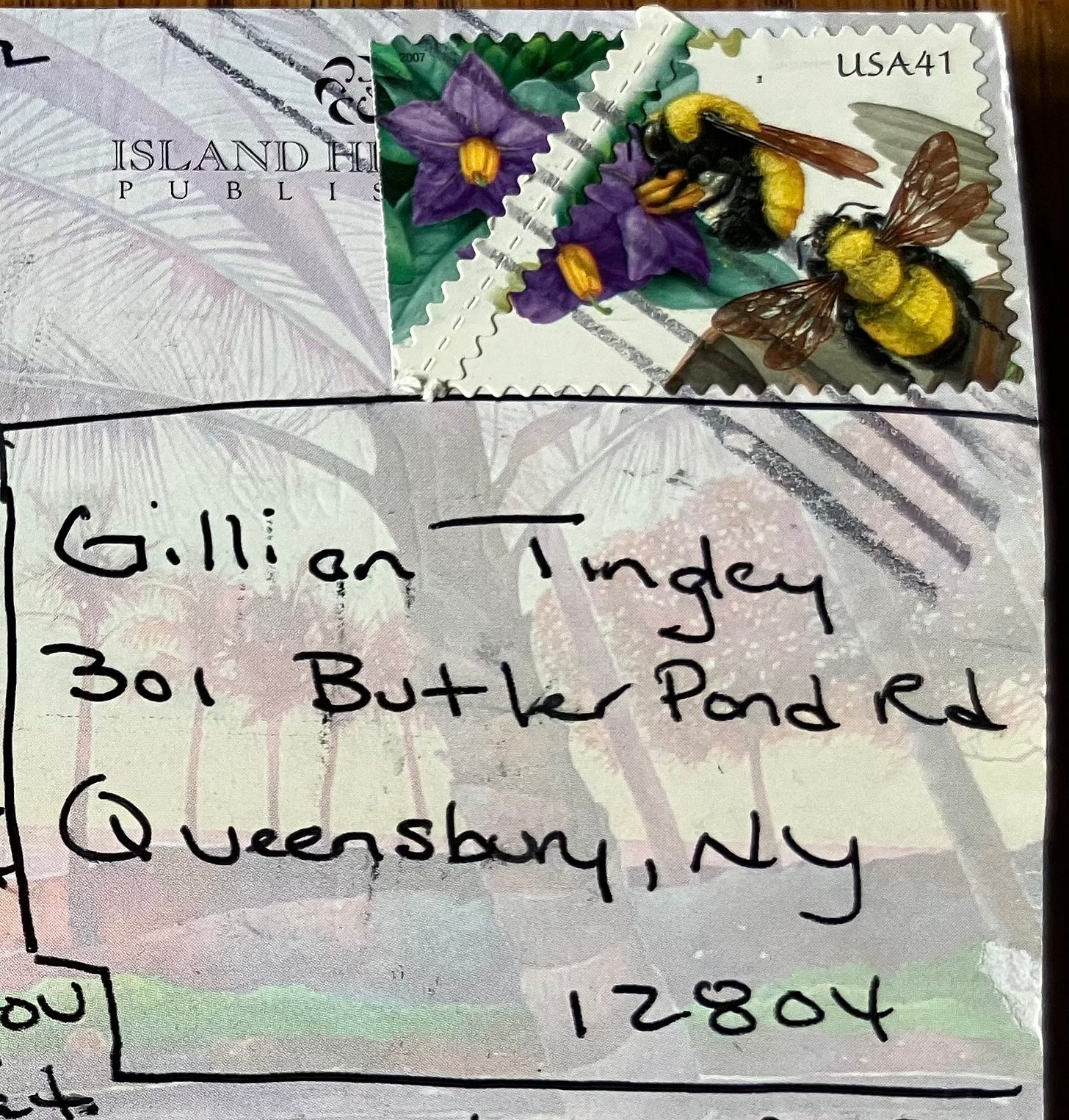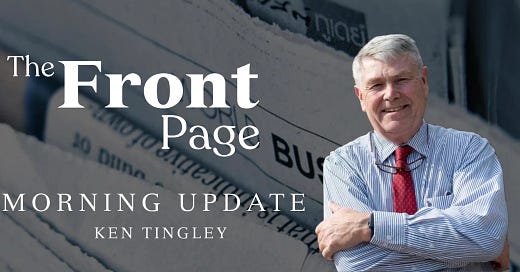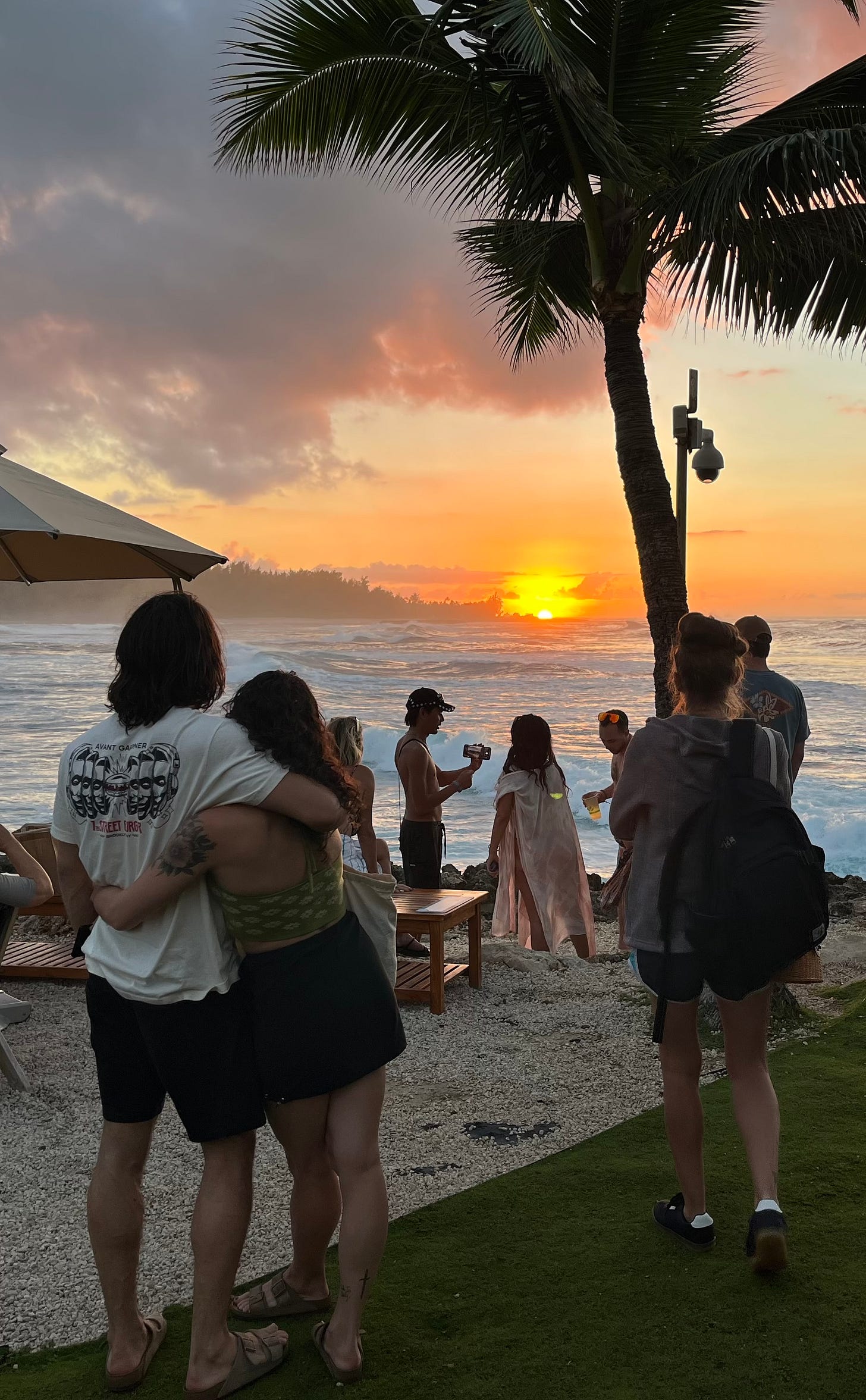Genetic testing just might save your life
Post-Star editor confirms he was let go and replaced by a marketing guy
Please consider supporting The Front Page with a paid subscription: HERE
My grandfather on my father's side died of pancreatic cancer when he was 61 years old. His wife died of pancreatic cancer 15 years later at age 76. The fact that a husband and wife would die of the same rare form of cancer - pancreatic cancer afflicts 15 out of every 100,000 people - is somewhat alarming for my family.
My uncle told me how my grandfather suffered from severe, debilitating pain and died within months of being diagnosed in 1967.
That got my attention as well.
Several years after my wife was diagnosed with ovarian cancer, she had genetic testing done and found she possessed a mutated gene for ovarian and breast cancers. She warned all her female cousins in England and urged them to get genetic testing.
She never heard from any of them.
This spring Gillian made me go for genetic testing because of how my grandparents died. Because of my family history, my doctor referred me to Glens Falls Hospital and insurance paid for my testing.
The result indicated I had a mutated gene that led to a higher incidence of pancreatic cancer.
I sent out an email to all my cousins and urged them to also have genetic testing done.
Because of genetic testing, my doctor scheduled a pancreatic endoscopy - they put tube down your throat to check your pancreas - and found I had "chronic pancreatitis."
Chronic pancreatitis can lead to debilitating pain - like my grandfather experienced - and can lead to cancer.
I had no symptoms.
I felt no pain.
And the damage was only found because the doctor was looking for it because of my family history.
The doctor recommended a low-fat diet and avoid consuming alcohol to ensure my pancreas was not damaged further.
Since my original email to my cousins, only one has acknowledged getting genetic testing. That cousin also had the mutated gene.
On Sunday, I sent out another email to my cousins and implored them to get genetic testing. I explained knowing you had the mutated gene would allow you to get further testing and take precautions with your diet.
I reminded them it was not a death sentence.
The testing allowed me to take preventive measures and head off any future problems.
If you have cancer in your family, I urge you to do it today. It doesn't mean facing your mortality, it means you might not have to sooner.
Most importantly for me, it was one final gift from my wife that may have saved my life.
Biochar - Right or wrong?
For some time, the community of Moreau has been struggling with the Biochar project.
What was supposed to be a job creator for the town by a company committed to fighting climate change by turning sewage into fertilizer - I'm sure I'm simplifying the product - turned into a contentious political debate that cost the long-time town supervisor his job.
For your consideration, Amanda Simson and Abby Rabinowitz of the Times Union did a deep dive into the issue in Friday's newspaper. It looked at the project's beginnings, how community activists came out against it while exploring if their opposition was short-sighted.
What I found fascinating was that the community's past experience with GE may have fueled its opposition to what they feared might be more environmental contamination.
Most of us have watched the debate from afar and don't really know what to think.
Some excellent journalism by the Times Union.
Killing the CFPB
For years I've been monitoring efforts by Republicans in Washington to kill the Consumer Financial Protection Bureau.
For those of you who lost a third or so of your 401k during the 2008 financial crisis, the CFPB was part of the reforms that allowed consumers to control the risk-taking on Wall Street.
The agency and its head are independent of Congress - Republicans seem to hate this - and has delivered millions of dollars in penalties to big financial institutions while reimbursing consumers for their losses.PB again with columnist Heather Cox Richardson reporting last week that Elon Musk is calling for elimination of the CFPB.
I hope he fails.

Stamp tells the story
A sharp-eyed reader noticed the stamp on the post card that my late wife sent to herself from Hawaii years ago and let me know that stamp came out in 2007. I recalled the trip being in 2006, so I was just one year off.
I guess there are still stamp collectors out there.
Thurston responds
Steve Thurston, the former managing editor at The Post-Star, confirmed on Facebook that he had been let go by the newspaper and he was not told why.
Welcome to corporate America.
He pointed out he was replaced by an editor with little journalism experience whose area of expertise was his marketing skills. You might to read Will Doolittle's take on that from Sunday.
"The reputation of the paper stinks," Thurston wrote on Facebook. "I knew this going in; I grew up with the paper. I knew that the area hated Lee Enterprises. Despite that, I thought I'd give it a try. I knew I had an uphill battle to improve subscriptions, which is an obvious mandate for any editor; I had a mixed bag there. To do that, however, we needed to — absolutely required that we — improve the reputation.
"Long term, I believe that's the only way forward," Thurston continued. "And if you want to be a newspaper (not just content you can sell to advertisers, but content readers will pay for, news they need and can use), you need to improve the paper's reputation, and it can't be faked. It has to be from showing up, telling the truth, giving readers stories and information that they want and need. Getting fancy videos that rebrand the paper will not do it - especially here. This area has a very sensitive BS meter, and on this topic specifically, it's super sensitive."
My only observation is that if you want to improve the reputation of a newspaper, you need to produce good journalism that can be trusted.
More on Post-Star
After The Post-Star announced that its old managing editor had left the newspaper and it hired a new one, this was found on LinkedIn:
The Post-Star seeks a news editor to fill a temporary, one-year position starting in June 2025. The news editor assists in the operation of our newsroom. With the managing editor, the news editor will direct news coverage; edit stories that fit various needs including online posting, news, briefs, and longer features; shoot, edit and produce photos and videos for online publication; and report, write and edit stories. The news editor will take the primary role working with the Lee Enterprises design team to produce our three-day-a-week print paper. General workplace diligence and attention to detail regarding AP style, grammar and punctuation rules are a must. The top candidates will have experience with BLOX and video production software. Knowledge of the greater Warren and Washington county area and management experience is preferred. The position requires some night and weekend work. We are an equal opportunity employer and welcome applications from candidates of all backgrounds. We are committed to building a diverse and inclusive team at Lee Enterprises.
Millionaire's row
I also also found this little factoid from the U.S. News and World Report:
President Biden's cabinet members had a total net worth of about $188 million.
The net worth of President-Elect Trumps cabinet appointees is at least $344 billion or more than the gross domestic product of 169 countries.
So the question is if the billionaire businesspeople are more in touch with the working class?
Photo of the Day
We arrived at the north shore of Ohau just before sunset on Saturday.
We made our way to the western side of the Turtle Bay Resort where I snapped this photo. I hope you enjoy and don't miss out on your own sunsets.
Ken Tingley spent more than four decades working in small community newspapers in upstate New York. Since retirement in 2020 he has written three books and is currently adapting his second book "The Last American Newspaper" into a play. He currently lives in Queensbury, N.Y.






“Science” was used as a red herring in the bio-char debate. The question is really about scale and logistics. While science can provide answers to some sets of questions in a controlled lab setting, science cannot provide answers to the myriad unknowns in building a plant at a previously untried scale and providing the “feedstock” for a process requiring thousands of tons of waste to be trucked hundreds of miles to a centralized plant.
Frankly, it seems like a Soviet answer to a diversified problem.
A more sensible resolution, which appears to be the fall back position, is to build plants at a smaller scale much closer to the source of sewage sludge.
I went one time to a meeting about the Bio-char, and was amazed at how the citizens did their research, and shared the information with everyone. I think the final decision was probably a wise one, based on how in depth many of these people researched it.